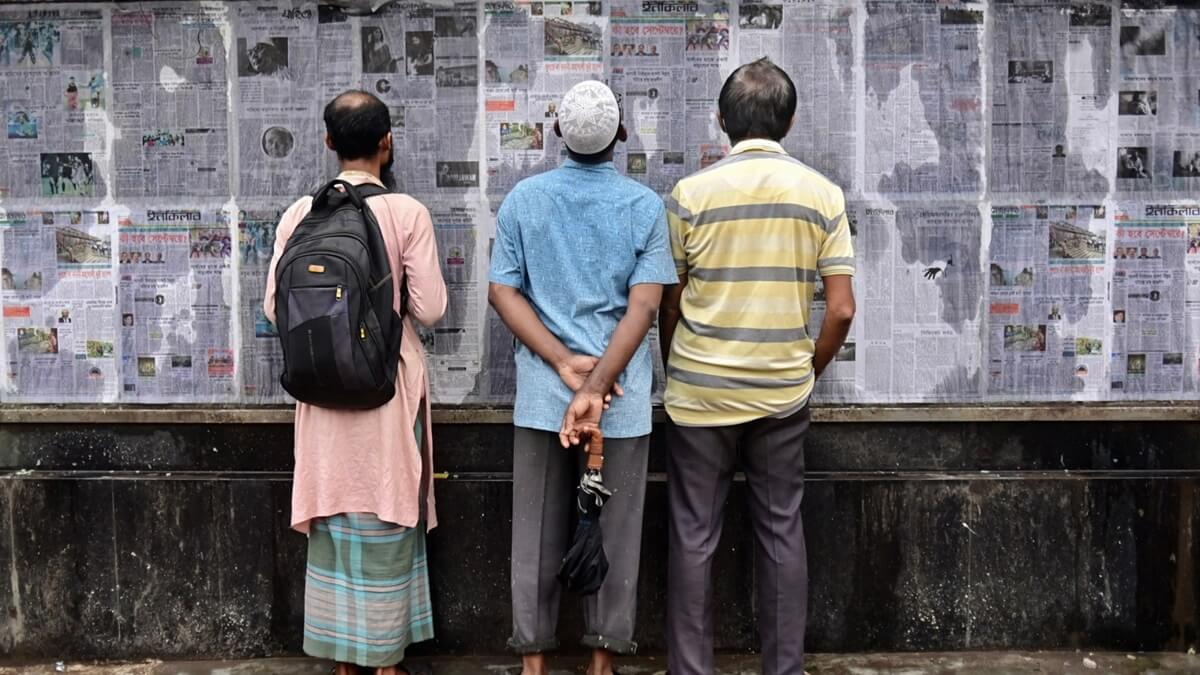Media Disinformation and Propaganda in South Asia Region
Trapa Sarker | 14 January 2024
The thriving technology boom-induced misuse of social media has been a rising concern for countries dealing with national elections. Around 65 elections in diverse democratic states are going to take place globally in 2024. There is no second opinion that social media plays a role of great importance when shaping the political views, and perceptions of common citizens during election campaigning. In today’s digital era, the use of misinformation and propaganda to fuel doubt and anger towards opposition parties is considered to be a significant political tool. By ‘Misinformation’, we refer to the spread of inaccurate news unintentionally whereas ‘Disinformation’ is used purposely for achieving some motive in particular. Shockingly popular social media platforms like YouTube, ‘X’, and Meta which used to have policies protecting people from misinformation, and hate speech previously have recently removed such 17 policies, standing completely at the polar end now. Even history testifies that a lack of patrolling on the propagation of election disinformation and hate speech encourages violence and genocide too.Bangladesh just now concluding its 12th parliamentary election amid controversies and major countries like India,Pakistan, and Sri Lankanow standing at a crucial juncture, gearing up for their respective national elections,this writing will principally discuss this issue in the context of South Asia.
Circulating false or misleading information and hate speech against some specific groups of people can undermine a country’s image on international platforms, further exacerbating already prevailing mistrust, hostility, and polarization among political parties of that country. According to the report of a Washington-based minority monitoring group, Hindutva Watch, 255 cases of hate speech against minorities have been recorded in India as part of the state policy of mobilizing and instigating political tool before the poll. The threat is real when we see manipulation reaching new heights, where miscreants can sabotage elections by publishing fake photos, videos, and audio using generative AI. In a country with 1.4 billion population, India has to tackle the paramount challenge of establishing the veracity of ‘Deepfake’ related content.
A similar concern is also raised by AFP who analyzed 700 news, out of which mostly were ambiguous pro-governmental articles released on various national and international media before Bangladesh’s national election. It deemed to be organized propaganda happening as part of governmental election campaign to influence public voting psychology, gaining larger acceptance among them. Incidents like inappropriate videos of Bangladeshi opposition female politician’s fabricated through AI were seen circulated few days back on social media before national election. Clearly, it was an attempt by fellow political parties trying to defame another by falling them pray into a massively used tool of political propaganda. Unfortunately, these types of misinformation are dangerous for a country like Bangladesh whose citizens have lower level of digital literacy practice. In the process, Bangladesh is experiencing declined public engagement, suppression of public sentiment, creating polarization of views, biasness as well as questioning country’s authenticity of electoral system.
On the other hand, Pakistan, in middle of internal political turbulence is expecting to witness 16th national election on February 8. It has past records of influencing voting behavior of citizens, swing political support, altering country’s legislative laws too. Already imprisoned former president Imran Khan’s viral AI cloned online video regarding election rally, has created ruckus and criticism countrywide. Despite having AI law passed, cases of disinformation are higher than ever this time because of absence of digital surveillance on internet. Widespread hate speech and anti-Muslim propaganda used during Sri Lanka’s parliamentary election in 2020 is feared again on occasion of its upcoming Presidential election. Inciteful violence triggered by racist posts, fake propaganda against candidate resulting into defeat, hate campaign on different social media platforms were some examples of how Sri Lankan election suffered from misuse of technology.
To sum up, in a year of record-breaking number of domestic elections lined up in 2024, understanding both influential and perilous effects of modern technology is conducive during pre-electoral period. As discussed above, South Asian countries are undergoing difficult time handling electoral propaganda and earning criticism on democratic values, transparency index. However, countries can tackle it by ensuring well protected right information environment, establishing fact-checking monitoring, educating public on media literacy from the ground level. Because it is foremost duty of a democratic country to deliver authentic news as part of citizen’s right to information through legitimate institutions.
Trapa Sarker, Research intern, CGS
Views in this article are author’s own and do not necessarily reflect CGS policy
